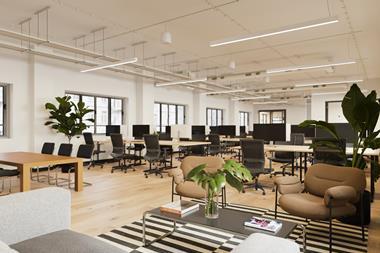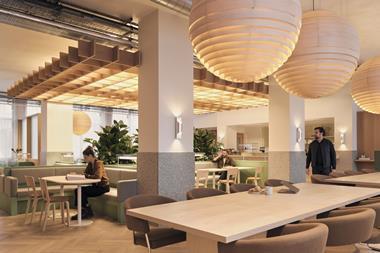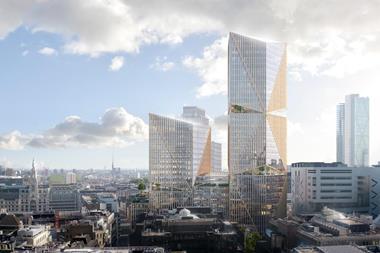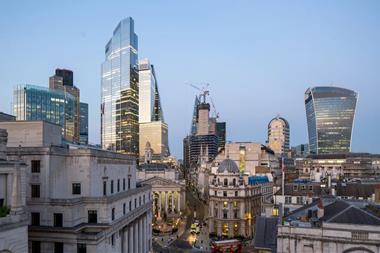The central business district (CBD) has long been seen as the corporate epicentre of the city.

However, as the nature of business has changed, so has the way in which organisations choose to locate themselves – raising questions over whether the CBD is still fit for purpose.
Having an address in a CBD has traditionally offered a degree of prestige to organisations, alongside the benefit of being in a centralised cluster of businesses. For example, although organisations may co-habit CBDs with competitors, the volume of customers attracted to an area with a condensed number of companies usually outweighs any competition issues.
But rising costs mean that many organisations are now looking to flexible space to help reduce their footprint in the CBD.
Although flexible offices have been around for decades, their recent rise has allowed organisations of all sizes to more easily explore multiple locations to trial a decentralised strategy.
Spreading out in this way has numerous benefits, including providing access to new clients and markets, reduced costs, attracting and retaining talent and lowering the organisation’s carbon footprint through less commuting.
Attracting and retaining talent in particular has become a key consideration when choosing a new location. Remote and flexible working is becoming the norm for younger workers, and for many staff and potential employees it is essential. Given the cost of living near to city centres, or commuting, requiring employees to work in a CBD may actually narrow the talent pool.

However, this does not spell the end for the CBD. Prestigious addresses are still sought after and, once again, flexible offices are opening up routes to CBD locations that many companies could only dream about several years ago.
As such, flexible office space is being used by large corporates that want to remain in the CBD and also run satellite offices outside urban centres to gain access to networks of talented labour pools, SMEs and start-ups.
The way businesses connect with one another and with their customers is changing. Gone are the days when customers had an expectation of multiple businesses operating from a single location and this is no longer a focus for organisations that do not require a physical presence.
Best of both worlds
In turbulent times, politically and economically, many corporates are unwilling to invest in expensive real estate long term and are looking to flexible office space as a way to diversify their commercial real estate portfolios and reduce risk. This offers the best of both worlds – valuable proximity to transport routes and key clients and the ability to attract and retain talent through flexible working practices.
One might be forgiven for thinking that leaving the CBD is now a sign of success considering the vast campuses – almost villages themselves – that large tech companies are developing. But even these organisations still value a presence in the city and many are choosing to use flexible and co-working spaces to provide this.
This includes companies that value high levels of privacy and security, such as those in the banking sector and, it would seem, Apple. For talented employees that are living and working in the CBD, though, having to commute out of the area to a suburb or business park is likely to be unappealing.
The way people connect, both in and outside work, has also changed hugely in recent years and continues to do so. The nature of CBDs is evolving, but they are still an important component of the cityscape.
We will certainly see a reduction in headcount and in the amount of space taken by larger organisations in CBDs. They will instead take space in locations where it is needed, and look for flexible options for their short- and medium-term requirements.
To support this strategy, flexible office space providers are acquiring space previously occupied by large corporate tenants. The space is now occupied by the same tenants on a shorter-term basis along with SMEs and start-ups.
It is not the beginning of the end for the CBD. However, the CBD is in a transitional phase in supporting organisations that are changing the way they work.
Kurt Mroncz is managing director of Offices iQ






























No comments yet